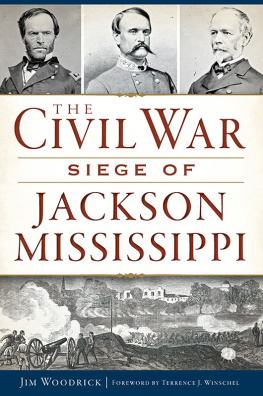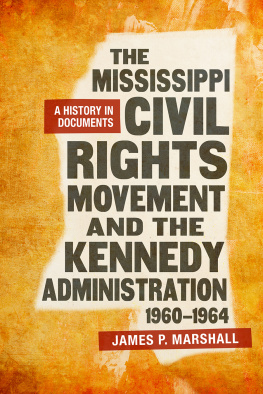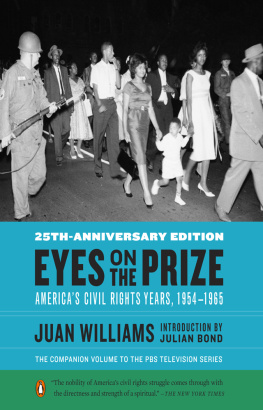THE LIMITS OF LOYALTY
THE LIMITS OF LOYALTY
ORDINARY PEOPLE IN CIVIL WAR MISSISSIPPI
JARRET RUMINSKI
University Press of Mississippi / Jackson
www.upress.state.ms.us
Designed by Peter D. Halverson
The University Press of Mississippi is a member of the Association of American University Presses.
A version of chapter three first appeared in the Journal of the Civil War Era, vol. 2, no. 4, December 2012, 51153.
Copyright 2017 by University Press of Mississippi
All rights reserved
Manufactured in the United States of America
First printing 2017
Library of Congress Cataloging-in-Publication Data
Names: Ruminski, Jarret, author.
Title: The limits of loyalty : ordinary people in Civil War Mississippi / Jarret Ruminski.
Description: Jackson : University Press of Mississippi, [2017] | Includes bibliographical references and index. |
Identifiers: LCCN 2017017860 (print) | LCCN 2017019089 (ebook) | ISBN 9781496813978 (epub single) | ISBN 9781496813985 (epub institutional) | ISBN 9781496813992 ( pdf single) | ISBN 9781496814005 (pdf institutional) | ISBN 9781496813961 (cloth : alk. paper)
Subjects: LCSH: MississippiHistoryCivil War, 18611865. | MississippiPolitics and government18611865. | Group identityMississippiHistory19th century. | NationalismConfederate States of America.
Classification: LCC F341 (ebook) | LCC F341 .R89 2017 (print) | DDC 976.2/05dc23
LC record available at https://lccn.loc.gov/2017017860
British Library Cataloging-in-Publication Data available
For Edith and AbbeyLoyalty wants the cause in its unity; it seeks, therefore, something essentially superhuman.
JOSIAH ROYCE, The Philosophy of Loyalty
CONTENTS
CHAPTER ONE
A Contest of Passion, Not Reason
Secession, War, and the Roots of Protective Nationalism
CHAPTER TWO
Well Calculated to Test the Loyalty of Her Citizens
Property, Principle, and the Oath of Allegiance
CHAPTER THREE
Tradyville
The Contraband Trade and the Problem of Loyalty
CHAPTER FOUR
Prey to Thieves and Robbers
Desertion, Exemption, and the Limits of Military Loyalty Enforcement
CHAPTER FIVE
I Believe That the Institution Is Extinct
Loyalty in the Master-Slave Relationship
CONCLUSION
Allegiance and Protection Are and Must Be Reciprocal
The Aftermath of War in Mississippi
ACKNOWLEDGMENTS
AS A KID WHO GREW UP IN A NORTHERN RUST BELT TOWN, I WAS ALWAYS fascinated by the South. It seemed so distant and different, but also as American as any Ohio farmstead or factory. It was only natural that I write about the South in some fashion, and now I can finally present the results. It has been a long, often arduous journey, turning what began as a graduate school idea into a book, and I had plenty of help along the way. First, my wife Abbey put up with way more than she bargained for as I researched this book over the years, and she deserves the utmost thanks for sticking with me through the whole process. Thanks also to my parents, Vicki and Jerry Ruminski, for encouraging me to pursue this type of work, although now they will have to read a whole book. To Clay Ruminski: I am sorry there are no furnaces in this study.
As for developing the ideas and conducting the research for this study, I had valuable help from beginning to end. Frank Towers and Jewel Spangler provided constant support and aid from the moment I decided to study Civil War Mississippi. Their guidance made this book immensely better than it ever would have been without them. The University of Calgarys Department of Graduate Studies provided the research and travel grants that helped me research this book, as did the Faculty of Social Sciences and the Department of History.
While researching this project, I had help from the excellent staff at all of the institutions I visited over the course of several years. Clinton Bagley and the entire staff at the Mississippi Department of Archives and History were incredibly welcoming and helped me locate everything I needed during the weeks I spent in Jackson. I also want to thank Jennifer Ford at the University of Mississippis Department of Archives and Special Collections for aiding me during my research stint at Ole Miss. Moreover, I am indebted to Ben Gilstrap for generously providing me with lodging in Oxford and for taking me to a heck of a Drive-By Truckers show. The staff at the University of North Carolina at Chapel Hill were awesome, and I especially want to thank them for allowing me to listen to my iPod while researching. Special thanks also to the staff at the Louisiana State University Special Collections Department and the staff at the National Archives in Washington, DC, and College Park, Maryland. Further, thanks to all of the archivists and historians hard at work digitizing primary sources; you are making historical research easier and more affordable.
Many colleagues provided valuable commentary and suggestions on this project. Thanks to Victoria Bynum for reading the manuscript and for writing a book that was adapted into a great movie. Thanks also to Lynn Kennedy, Elizabeth Jameson, Hendrik Kraay, Faye Halpern, Aaron Sheehan-Dean, Andy Slap, William Blair, Paul Quigley, and Timothy B. Smith for the helpful commentary. Finally, thanks to the staff at the University Press of Mississippi for giving me the opportunity to publish this work and for being so accommodating throughout the process.
THE LIMITS OF LOYALTY
INTRODUCTION
AT NOON ON DECEMBER 26, 1862, AN OVERFLOW CROWD PACKED INTO the legislative house in downtown Jackson, Mississippi, to hear a speech by native son Jefferson Davis, the president of the Confederate States of America. Davis took the opportunity to assure the crowd that the recently enactedand unpopularConscription and Exemption Acts were necessary to ensure the Confederacys survival against the North. Omitting mention of the May and October battles at Corinth, Davis stated that you in Mississippi, have but little experienced as yet the horrors of the war. You have seen but little of the savage manner in which it is waged by your barbarous enemies. He emphasized that the great aim of the government is to make our struggle successful and asked the audience if they were willing to lose their rights and their property to Yankee rule should the Confederacy fall in defeat. I feel that in addressing Mississippians the answer will be that their interests, even life itself, should be willingly laid down on the altar of their country, he concluded.1 As Davis earlier noted, Mississippi in general had yet to experience the wars worst hardships, but in suggesting that Mississippians should willingly sacrifice everything to the goal of Confederate independence, he fused their interests with those of the nation. In doing so, Davis tried to instill in them the devotion needed to ensure Southern victory.
How Mississippians responded to Daviss exhortation is the subject of this study. I use Mississippi from 1860 to 1865 as a case study of Confederate loyalty during the Civil War. This Deep South state should have been rabidly pro-Confederate: in 1860, slaves made up 55 percent of the states population, and their labor made it the countrys leading cotton exporter. It was also a hotbed of secession and was the second state to leave the Union.2 Yet, Mississippi was also an early militarily divided state that faced Union army occupation through most of the conflict, making it fertile ground for exploring the influence of different allegiances.









